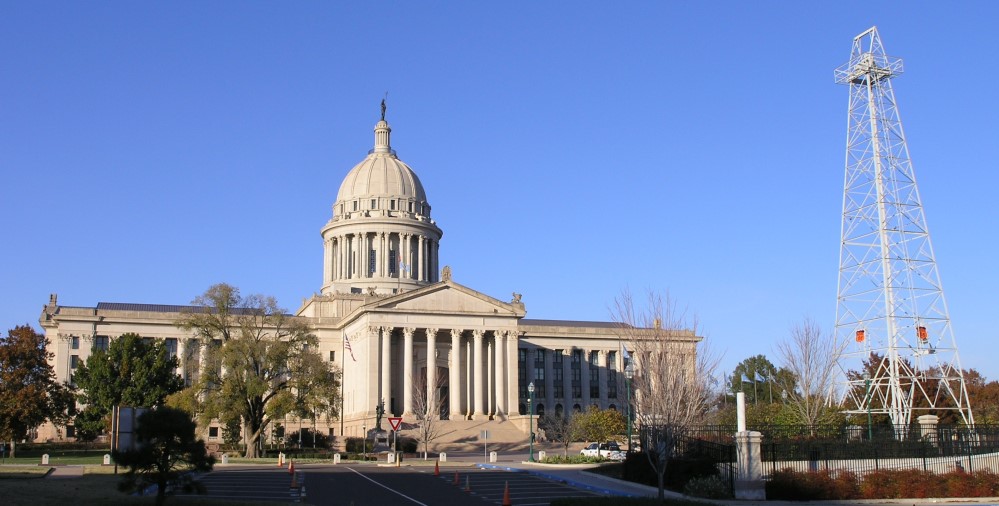Oklahoma Senate recognizes Khojaly genocide

By Sara Rajabova
Oklahoma has become another U.S. state to recognize the Khojaly genocide committed against Azerbaijanis by Armenians during the 1990s war.
On Monday the Oklahoma state legislature adopted Senate Resolution 3 marking the 21st anniversary of the Khojaly Massacre at its first session.
The document highlights the Armenia-Azerbaijan Nagorno-Karabakh conflict, the occupation of Khojaly by Armenian armed forces with the aid of a former USSR infantry regiment and the killing of over 600 innocent civilians there in 1992, Azerbaijan's state news agency AzerTAg reported.
Taking into consideration the fact of the tragic events and commemorating the anniversary of the Khojaly massacre, the Oklahoma Senate decided to send the document to the U.S. Congress, State Department and U.S. Embassy in Azerbaijan.
The resolution had been introduced by Senator Tom Ivester, representing District 26.
The town of Khojaly was situated within the administrative borders of the Nagorno-Karabakh region of Azerbaijan. Its population constituted over 7,000 people.
Late into the night of February 25, 1992, Khojaly came under intensive fire from the towns of Khankendi and Askeran already occupied by Armenian armed forces. The Armenian forces, supported by the ex-Soviet 366th regiment, completed the surrounding of the town already isolated due to ethnic cleansing of the Azerbaijani population of the neighboring regions. The joint forces occupied the town, which was ruined by heavy artillery shelling.
Thousands of fleeing civilians were ambushed by the Armenian forces. Punitive teams of the so-called Nagorno-Karabakh defense army reached the unprotected civilians to slaughter them, mutilating and scalping some of the bodies. 613 civilians, including 106 women, 70 elderly and 83 children were killed in the massacre.A total of 1,000 civilians were disabled. Eight families were exterminated, and 25 children lost both parents, while 130 children lost one parent. Moreover, 1,275 innocent people were taken hostage, while the fate of 150 remains unknown.
Armenia's incumbent president, Serzh Sargsyan, who also commanded Armenian forces during the Karabakh war with Azerbaijan, described the massacre as an act of revenge to "break the stereotypes" of Azerbaijan. Though Armenian authorities formally deny involvement, in the March 1997 Human Rights Watch reaffirmed the primary role of Armenian forces in the massacre.
Last month, New Mexico and Arkansas state legislatures recognized the Khojaly massacre in addition to the states of Georgia, Texas, New Jersey, Maine and Massachusetts that have done the same in the past few years.
Resolutions on the Khojaly tragedy have also been passed in the parliaments of Turkey, Pakistan, Mexico, and Colombia, as well as the Organization of Islamic Cooperation (OIC).
This year, such resolutions were adopted in the parliaments of the Czech Republic, Romania, Serbia and Bosnia and Herzegovina.
Azerbaijan and Armenia for over two decades have been locked in conflict, which emerged over Armenian territorial claims. Since the lengthy war in the early 1990s that displaced over one million Azerbaijanis, Armenian armed forces have occupied over 20 percent of Azerbaijan's internationally recognized territory, including Nagorno-Karabakh and seven adjacent regions.
Russia, France and the U.S. - co-chairs of the OSCE Minsk Group - have long been working to broker a solution of the long-lasting conflict, but their efforts have been largely fruitless so far.
Here we are to serve you with news right now. It does not cost much, but worth your attention.
Choose to support open, independent, quality journalism and subscribe on a monthly basis.
By subscribing to our online newspaper, you can have full digital access to all news, analysis, and much more.
You can also follow AzerNEWS on Twitter @AzerNewsAz or Facebook @AzerNewsNewspaper
Thank you!
